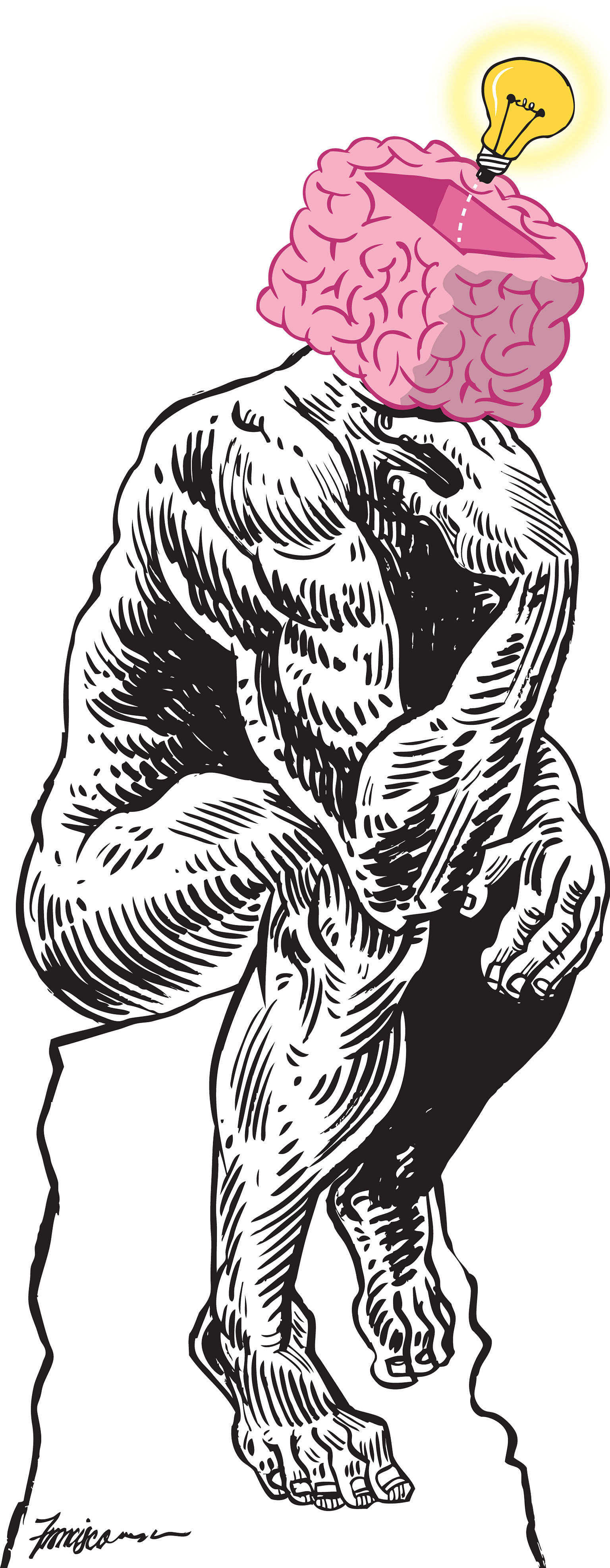One nice thing about my job is that I sometimes get to interview original thinkers. This fascinating category of people is distinct from "winners" or "leaders". Some original thinkers end up winning money and prizes, but that's not what they are after. Rather, their mission is to do groundbreaking work. Over the years I've noticed that original thinkers from very different fields structure their careers in strikingly similar ways.
1. THEY TEND TO FIND THEIR PASSION EARLY
Lena Dunham, for instance, made her first feature film aged 23; Warren Buffett bought his first stock aged 11. Finding a field young chimes with the billionaire investor's "rolling snowball" theory: The earlier you start, the longer you can roll down the hill of your career, accumulating experience, contacts and knowledge.
2. ORIGINAL THINKERS AIM TO BUILD A ZONE OF AUTONOMY
As the singer Amy Winehouse says in the posthumous documentary Amy: "Success to me is not success to the record company or whatever. Success to me is having the freedom to work with whoever I want to work with; to always be able to f**k everything off and just go to the studio."
Dunham has built her zone of autonomy as writer, director and executive producer of her TV show Girls.
Economist Jean Tirole built his by moving from the Massachusetts Institute of Technology to less prestigious Toulouse. He told me: "When I left MIT, it made no difference to MIT. It's such a great place and it functions so efficiently, one person doesn't make a difference. Here, there's a team of friends who decided to make a difference." At the Toulouse School of Economics, Tirole won a Nobel Prize.

As manager of Arsenal, Arsene Wenger has built a zone of autonomy unmatched in modern football. Last spring, when he was again getting hammered for not winning prizes, I spent a morning with him and realised to my surprise that he thinks he has the best job in football. Wenger would love to win but he cares more about shaping players and developing new methods. Arsenal has let him do that almost undisturbed since 1996.
3. ORIGINAL THINKERS TEND TO GET STATUS AND MONEY THROWN AT THEM
They learn to reject the world's rewards ("winners" rarely do this) in order to protect their work.
When Ta-Nehisi Coates became a best-selling author, he fled the US to be anonymous in Paris. He didn't want to become a talking head in a limousine. "I think it's really important to the creativity to stay hidden in your own head," he told me. That's why Philip Roth lives in seclusion in Connecticut, writing every day until he was nearly 80.
Wenger has repeatedly turned down richer clubs. Similarly, Billy Beane, who pioneered the statistical revolution in sport, has remained general manager of the little Oakland A's baseball club since 1997. Beane learnt his lesson as a teenager, when he accepted US$125,000 to play baseball instead of going to Stanford University. He soon regretted the choice, and decided never to let money guide his decisions again. Even Buffett doesn't seem interested in wealth: He still eats in his favourite steakhouse in Omaha, Nebraska.
Beane and Wenger (the two most interesting people I've met in sport) have run their clubs longer than almost any of their peers. That's because other good performers move in pursuit of money and trophies - that is, in the hope of becoming "winners".
Winners often call themselves original thinkers (or in their preferred jargon, "out-of-the-box thinkers"). However, they usually aren't. Winning enhances your status with others (what Buffett calls the "outer scorecard"), but it rarely has much to do with an internal gauge of merit (Buffett's "inner scorecard"). Saying no to money and fame is hard. Winehouse's entourage pushed her to say yes, and eventually she succumbed to drugs, drink and death.
4. ORIGINAL THINKERS ARE LIFELONG LEARNERS
I witnessed Wenger's first meeting with Beane at a conference in London: They sat on a sofa talking for three hours straight, each desperate to learn from the other. As Dunham says: "Part of being human is that you're in a constantly transitional place."
When I've interviewed original thinkers, they keep asking questions back. Dunham recently even became an interviewer herself, for her "Women of the Hour" podcast.
Original thinkers try to learn new tricks rather than keep performing the old one. In Winehouse's words: "Never the same thing twice, yeah?" That's why Coates, after writing a best-selling essay on the black American condition, is now following up with a superhero comic. Original thinkers never intend to arrive. They just keep questing. Wenger, now 66, recently told French newspaper L'Equipe: "I always live in the future." He gives away the medals he wins.
Our era undervalues original thinkers, because we tend to rank people by their fame and money. The football manager Jose Mourinho, when he was still a winner, mocked Wenger as "a specialist in failure". That's a very modern misunderstanding. But Wenger probably wasn't very bothered, because he has an inner scorecard.
FINANCIAL TIMES
